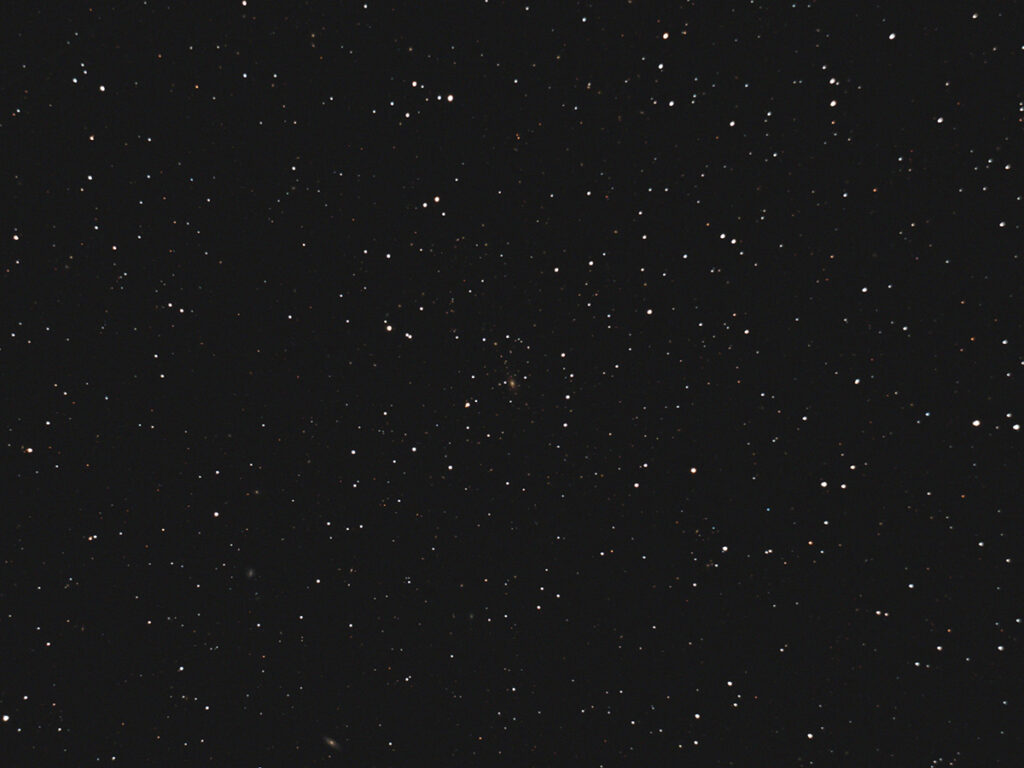
Telescope: Meade SN10 at f/4, Orion Atlas EQ-G
Camera: QHY 168c, -10: Deepsky Default; Gain: 4, Offset 30
Filter: Orion Imaging Skyglow Filter
Guide scope: Williams Optics 50mm, ASI290MM Mini, PHD2
Exposure: 27x240sec saved as FITS
Darks: 32x240sec saved as FITS
Flats: 32×0.25sec, tee shirt flats taken at dusk
Average Light Pollution: Red zone, fair transparency
Lensed Sky Quality Meter: 18.6 mag/arc-sec^2
Stacking: Mean with a 2-sigma clip.
White Balance: Nebulosity Automatic
Software: Nebulosity, Deep Sky Stacker, Photoshop
At the center of this field is what appears to be a small, faint, elliptical galaxy surrounded by a cluster of faint stars. However, this galaxy appears small only because of its great distance; 1.04 billion light years! This is IC 1101, one of the largest galaxies known. This supergiant lies at the center of the Abell 2029 galaxy cluster in Virgo. The faint stars that appear to form a cluster around the galaxy are actually satellite galaxies of IC 1101. The galaxy itself is approximately 420,000 light years across with a halo that spans nearly 4 million light years and is home to about 100 trillion suns. Recent studies suggest that the core of IC 1101 is relatively sparse having the been hollowed out by the galaxy’s supermassive black hole.
IC 1101 is currently low in the southeast after sunset and is high in the south by midnight.
Recent Comments